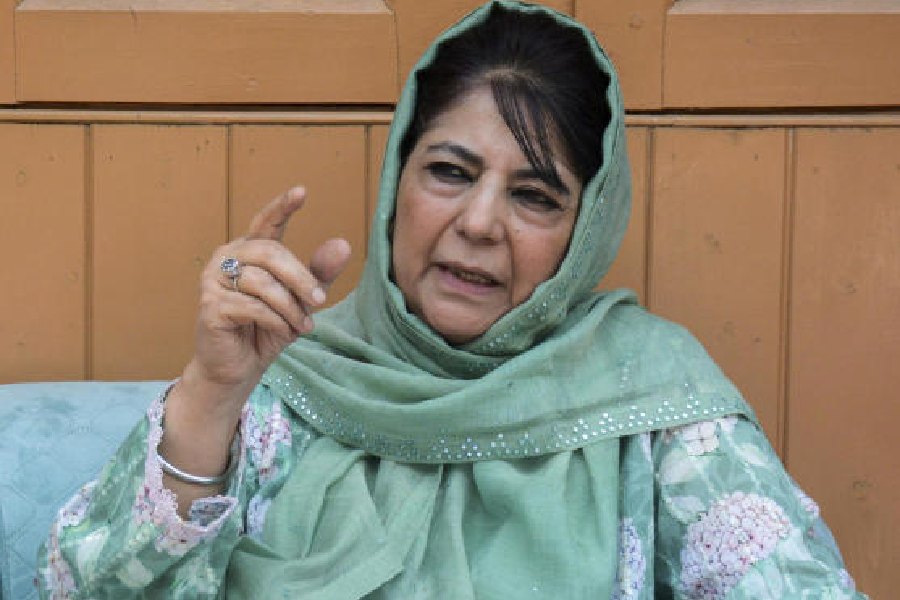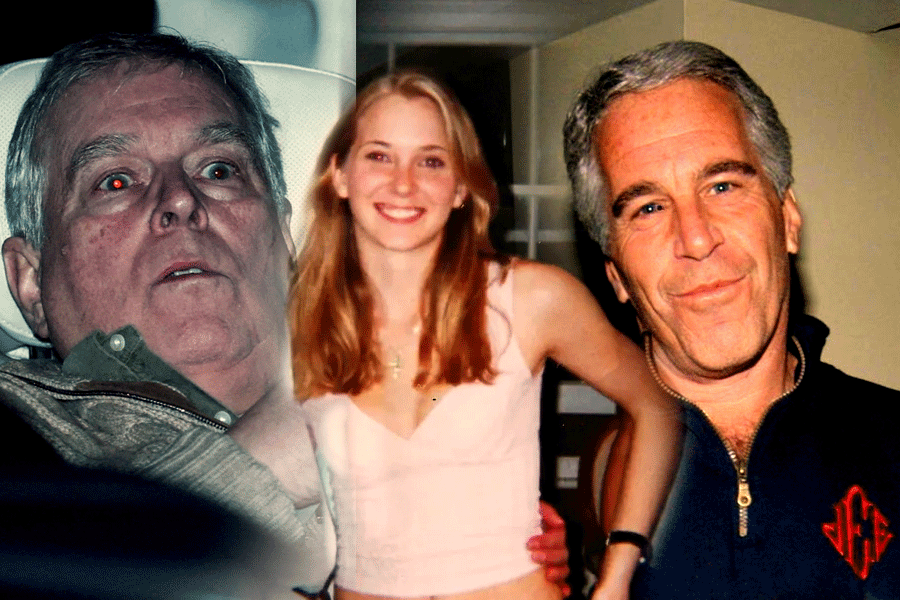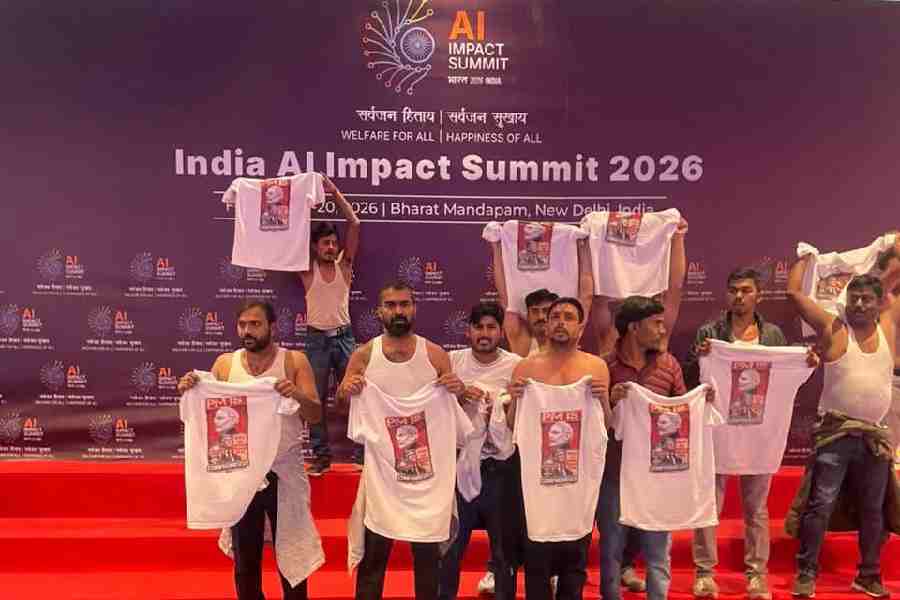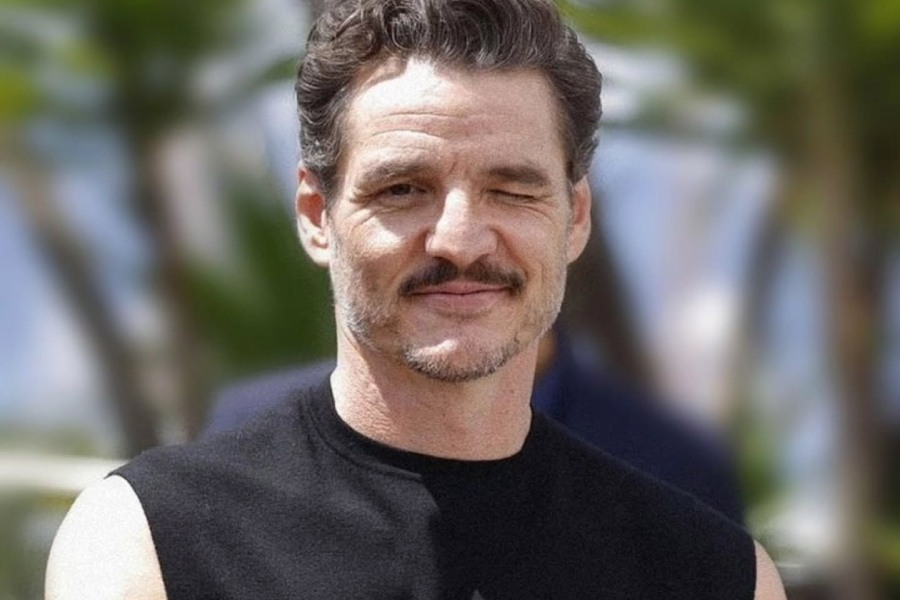 |
| Children perform at a function to mark the 150th birth anniversary of Rabindranath Tagore in Agartala on Sunday. Picture by Eastern Projections |
Agartala, May 9: The celebrations of Rabindranath Tagore’s 150th birth anniversary began across the state with colourfully attired schoolchildren hitting the streets with songs and dances authored by India’s first Nobel Laureate.
Leading cultural outfits like Chhandaneer, Rabisudha, Rabi Tirtha and Kabyalok launched daylong special programmes to celebrate the event with chief minister Manik Sarkar and information and cultural affairs minister Anil Sarkar inaugurating a series of programmes in and on the outskirts of Agartala town.
However, a raging controversy marred the gaiety, with a number of intellectuals, including professor Sunil Koloi of Tripura University approaching Governor D.Y. Patil to recommend the inclusion of a member of Tripura’s royal family into the national-level committee for celebration of the poet’s birth anniversary.
A delegation of cultural activists led by Tapas De, Sushil Chowdhury and Koloi met the governor at Raj Bhavan this morning and handed over a memorandum containing details of the poet’s five-decade long close relation with the kings of Tripura.
They requested the governor to take up the matter with the central authorities to ensure the inclusion of a member of Tripura’s royal family in the national committee.
Koloi said Tripura’s king Birchandra Manikya (1870-1896) had been deeply impressed by young Tagore’s poem Bhagna Hriday (Broken Heart) in 1881 when he was in trauma over the untimely death of his consort and chief queen Maharani Bhanumati Debi.
“The king had sent his political secretary Radha Raman Ghosh to Calcutta to convey his congratulation and appreciation of the poem and this laid the foundation of a long and durable relationship between the kings and the poet,” said Koloi.
He said earlier, Tripura’s King Krishna Kishore Manikya (1830-1849) developed a friendly relation with the poet’s grandfather Prince Dwarakanath Tagore.
King Birchandra who subsequently supplied the poet with inputs on Tripura’s history for his celebrated novel Rajarshi and drama Visarjan had also offered to set up a full-fledged printing press to print Tagore’s literary works.
That ultimately did not happen but the king and the poet met at Kurseong several times before Birchandra passed away in 1896.
Tagore’s relation with Tripura deepened with Birchandra’s son Radhakishore Manikya’s (1897-1909) ascension to the throne.
“During the successive reigns of Radhakishore, Birendra Kishore and Bir Bikram Kishore, Tagore visited Tripura seven times,” said Koloi. Tripura kings sent Dhirendra Krishna Debbarma and Manipuri Buddhimanta Singh to Visva Bharati to teach music and Manipuri dance.
Visva Bharati was also given regular annual grants and without financial assistance from the kings at the initial stage, Visva Bharati’s library and hospital would have been difficult to set up.
Apart from this, months before the poet’s death in 1941, Tripura’s last King Bir Bikram Kishore Manikya had visited Visva Bharati personally with his entourage to confer the title of Bharat Bhaskar on the octogenarian poet days before his death.
Koloi said the inclusion of a member of Tripura’s royal family in the national committee for celebration of Tagore’s 150th birth anniversary would be a “token but significant gesture” to Tripura and its people.
“All these are recorded history, as Tagore himself was very warm and glowing in his references to Tripura. His Nobel prize was celebrated as enthusiastically in Tripura as in Bengal under royal patronage and initiative. State-wide mourning was ordered by king Bir Bikram after the poet’s death but Tripura and its royal family have been near completely erased from Visva Bharati and the cultural world left by Tagore,” said Koloi.











